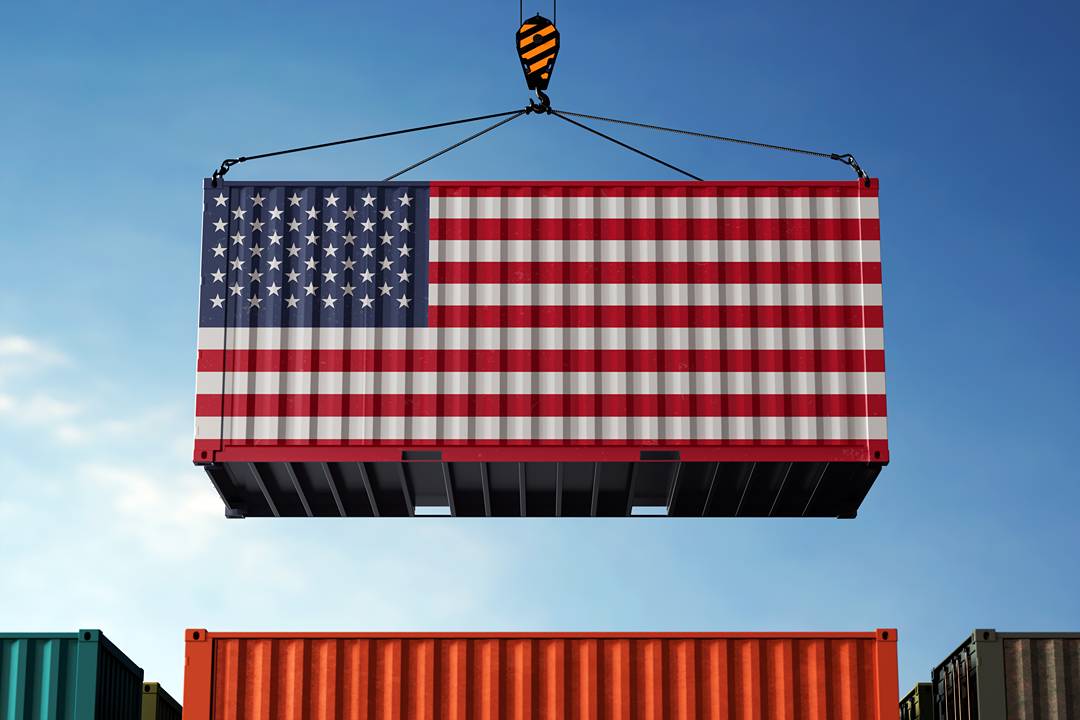The global economy has been rewired and investors must adapt
President Trump’s “Liberation Day” announcement marks a defining moment for global trade. Investors must move into the new environment with their wits about them.

Stockhead
Don't miss out on the headlines from Stockhead. Followed categories will be added to My News.
President Trump’s “Liberation Day” announcement marks a defining moment for global trade.
The broad sweep of tariffs introduced late this week signals a decisive break from decades of economic integration and coordination. Markets are now moving into a new phase – one defined by rising costs, reduced predictability and a visible reshaping of global commerce.
A 10% blanket tariff on all US imports will take effect within days. Dozens of countries have been singled out for even higher levies – some as high as 49% – with little consistency in which partners are penalised.
Emerging markets across Asia and Africa, traditional allies like Australia, and major global suppliers have all been hit. It’s a wide-net policy that disrupts rather than recalibrates.
Investors have already started to adjust. Equity markets slipped, particularly in Asia. Currencies weakened. Bond yields moved on inflation expectations. But the full impact is only beginning. Tariffs of this scale create drag – on growth, on margins, and on the broader investment climate. They are not just taxes on trade – they are frictions that multiply across every level of the economy.
Global supply chains cannot simply reroute overnight. They are built over years through complex relationships, regulatory frameworks, and cost structures. The reintroduction of barriers, especially ones that shift with political mood, forces companies to rethink operations, relocate production, and reassess markets. That process takes time and carries cost.
Inflation is likely to rise as a result. Tariffs push prices higher – not just in the US, but in every economy linked to it. Input costs increase, transportation costs rise, imported goods become more expensive.
Central banks had begun to consider easing after a period of aggressive tightening. But that path is now complicated by renewed price pressures imported through trade channels.
The OECD warned that a global tariff escalation of 10 percentage points could cut global output by 0.3% and lift inflation by 0.4 percentage points annually over three years. With yesterday’s move, that scenario is no longer theoretical.
For emerging markets, especially in Southeast Asia, the implications are severe. Countries like Vietnam, Cambodia, Laos, and Myanmar are facing steep tariffs despite having built their export capacity to serve demand created by the same globalisation the US once endorsed.
These economies are now being penalised not for bad faith, but for geography. Many host Chinese-linked operations or capital, making them convenient targets in a broader strategy to constrain Beijing’s influence.
That approach misjudges the long-term consequences. These nations depend heavily on export industries for jobs, growth and investment.
The pressure placed on them will not isolate China – it will erode stability and drive capital elsewhere. It also hands China an opportunity to step in as a more predictable partner, expanding its influence while the US undercuts its own alliances.
Even developed markets have been pulled into the crossfire. Australia, one of the US’s closest partners, has been openly targeted.
That sends a clear message to every investor managing geopolitical exposure: alignment no longer guarantees stability. Market assumptions about trade security and access are now subject to disruption, regardless of partnership history.
Multinationals with distributed production models are already facing complex questions. Where will new tariffs fall next? Will exemptions be granted, or withheld as leverage? What sectors are safe from future escalation? In this environment, passive exposure becomes a liability.
For investors, the priority must now be active positioning. Supply-chain vulnerability needs to be reassessed. Countries with low political exposure and domestic demand resilience are likely to see increased capital flow. Sectors focused on regional production, infrastructure, and commodity security could gain relevance as the global map is redrawn.
This is also a moment for portfolio diversification with geopolitical discipline. Investors can no longer rely on economic logic alone to drive returns.
Policy risk must be treated with the same urgency as credit or currency exposure. Regions that were once treated as extensions of broader emerging markets baskets must now be analysed independently, based on tariff exposure and capital access.
The reordering of global trade has implications that extend well beyond markets. It affects how governments borrow, how inflation is managed, how currencies behave, and how growth is distributed.
For investors, this creates opportunity – but only for those willing to adapt quickly and rethink allocation strategies from the ground up.
Of course, there’s no guarantee that these tariffs will hold. They may be adjusted, reversed, or expanded in the months ahead. But the signal sent by their introduction is lasting. It tells the world that political imperatives can now override economic alignment, and that policy predictability is no longer a given.
Global trade is no longer anchored in consensus. It is being shaped by leverage, retaliation, and shifting alliances. That’s the new operating environment, and investors need to meet it head-on.
The views, information, or opinions expressed in the interviews in this article are solely those of the author and do not represent the views of Stockhead.
Stockhead does not provide, endorse or otherwise assume responsibility for any financial advice contained in this article.
Nigel Green, is the group CEO and founder of deVere Group, an independent global financial consultancy.
Originally published as The global economy has been rewired and investors must adapt





